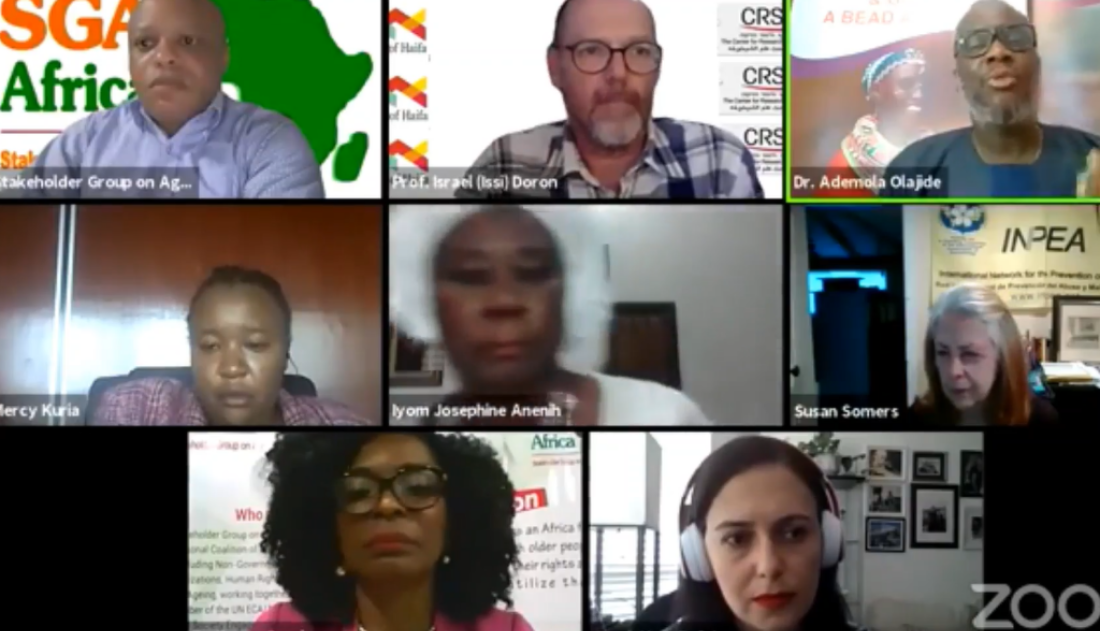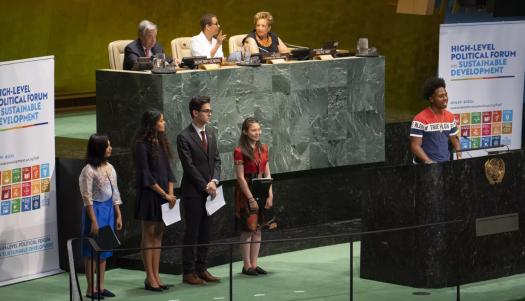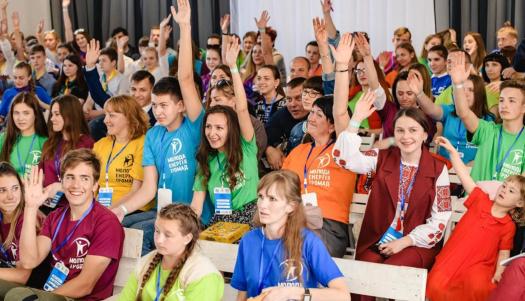
The Stakeholder Group on Ageing Africa, in collaboration with African Union Commission and DESA hosted a virtual Pan African Webinar on the “United and Coordinated Africa for the Inclusion of Older Persons in COVID-19 Policy Response and Development Agendas.”
The Stakeholder Group on Ageing Africa (SGA Africa) conducted a survey on the impact of COVID-19 containment and mitigation strategies on the rights of older Africans. The aim of the survey was to signal to policy makers the vulnerabilities experienced by older persons during the pandemic and to identify measures to enhance recovery efforts towards achieving rights-based, equitable and inclusive responses. Africa recorded its first COVID-19 case in Egypt on February 14, 2020, since then, a total of 54 African countries have been severely and progressively affected, with older persons bearing the higher rates in mortality across all 18 countries surveyed. In response to the COVID-19 global health emergency, African governments adopted extraordinary measures to contain and mitigate the pandemic, in order to save lives. A report highlighting findings from the survey, which will be published in the September 2020 edition of the Journal of the International Institute on Ageing United Nations - Malta, includes a synopsis of the findings of the survey of the impact of COVID-19 containment and mitigation strategies on the rights of older persons in Africa. In addition to the findings from the 18 African countries, the unique context of two countries; Cameroon and South Africa are detailed in the Report. Among various critical objectives, the survey also sought to identify and assess community level support and volunteerism and to ascertain, if these mechanisms provided the needed support to older persons. Results show that although, these strategies are put in place to prevent the spread of COVID-19, they have implications (both positive and negative) for the rights of older persons in Africa. The absence as reported in most countries, of government social protection infrastructure for older persons, leads to income challenges especially, with the exclusion of most of the older persons as recipients of palliatives. In most countries, older persons were not consulted during containment preparatory stages and, their concerns were not considered. Other noticeable effects included increased incidences of elder abuse.
The event featured speakers from African Governments, civil society, the African Union as well as DESA, the Economic Commission for Africa (ECA) and other UN agencies in the region including DCO, UNFPA and WHO. Discussions aimed at calling for a coordinated COVID-19 response and recovery interventions, and that humanitarian and development public policy must make deliberate efforts to include older persons like other population age groups. Panelists proposed key recommendations to promote the dignity, wellbeing and quality of life of older persons within the pandemic and beyond.
 Welcome to the United Nations
Welcome to the United Nations


